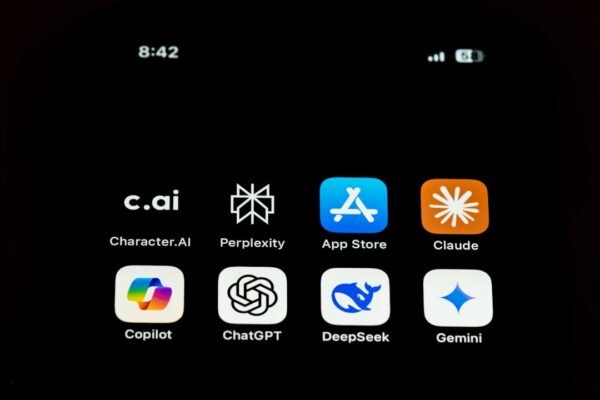Generative AI represents a transformative leap in the realm of artificial intelligence, characterized by its ability to create new content, whether it be text, images, music, or even complex simulations. Unlike traditional AI systems that primarily analyze and interpret existing data, generative AI employs sophisticated algorithms to produce original outputs based on learned patterns from […]
Generative AI for personalised learning in digital classrooms
Generative AI represents a transformative leap in the field of artificial intelligence, characterized by its ability to create new content, whether it be text, images, music, or even complex simulations. Unlike traditional AI systems that primarily analyze and interpret existing data, generative AI employs sophisticated algorithms to generate novel outputs based on learned patterns from […]
Future Trends of AI in Academic Research and Publication
The integration of artificial intelligence (AI) into academic research and publication has ushered in a transformative era, reshaping how scholars conduct studies, analyze data, and disseminate findings. AI technologies, characterized by their ability to process vast amounts of information and learn from patterns, have become indispensable tools in the academic landscape. From automating mundane tasks […]
AI for Administrative Efficiency in Educational Institutions
Artificial Intelligence (AI) has emerged as a transformative force across various sectors, and education is no exception. Educational institutions are increasingly adopting AI technologies to enhance their operational efficiency, improve student experiences, and streamline administrative processes. The integration of AI into educational settings is not merely a trend; it represents a fundamental shift in how […]
Integrating AI into Blended Learning Environments
Artificial Intelligence (AI) has emerged as a transformative force in education, particularly within blended learning environments that combine traditional face-to-face instruction with online learning components. In these settings, AI serves multiple roles, from personalizing learning experiences to automating administrative tasks. The integration of AI technologies allows educators to harness vast amounts of data to tailor […]
Critical Thinking in the Age of AI-Supported Learning
Critical thinking is an essential skill that transcends academic disciplines and professional fields. It involves the ability to analyze information, evaluate evidence, and construct reasoned arguments. In an age where information is abundant and often overwhelming, the capacity to discern credible sources from unreliable ones is paramount. Critical thinking empowers individuals to navigate complex issues, […]
AI and Personalized Pathways in Higher Education
The landscape of higher education is undergoing a profound transformation, driven by the rapid advancement of artificial intelligence (AI) technologies. As institutions strive to meet the diverse needs of their student populations, the concept of personalized pathways has emerged as a pivotal strategy. Personalized pathways refer to tailored educational experiences that align with individual students’ […]
How AI Changes Group Work and Collaborative Learning in Classrooms
Artificial Intelligence (AI) has emerged as a transformative force in various sectors, and education is no exception. The integration of AI technologies into educational settings is reshaping how students learn, interact, and collaborate. By leveraging machine learning algorithms, natural language processing, and data analytics, educators can create personalized learning experiences that cater to the diverse […]
AI for Grading and Assessment: Efficiency vs Fairness Debate
Artificial Intelligence (AI) has emerged as a transformative force in various sectors, and education is no exception. The integration of AI into grading and assessment processes is reshaping how educators evaluate student performance and provide feedback. Traditional grading methods, often labor-intensive and time-consuming, are being supplemented or even replaced by AI-driven systems that promise to […]
The Impact of AI on Teacher Training and Development
Artificial Intelligence (AI) has emerged as a transformative force in various sectors, and education is no exception. The integration of AI technologies into educational settings is reshaping how knowledge is imparted, how students learn, and how educators develop their skills. From personalized learning experiences to sophisticated assessment tools, AI is revolutionizing traditional educational paradigms. The […]


















